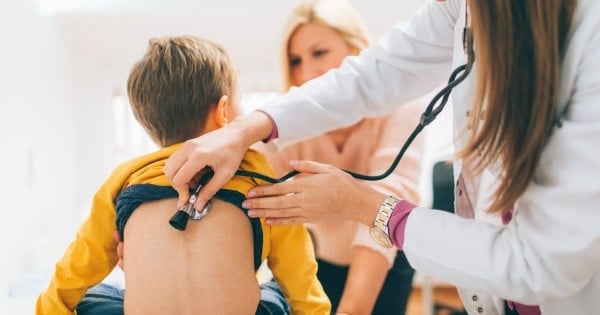

I remember I felt incredibly confused.
I’d walked out of the doctor’s office with two scripts for different asthma medication and had immediately forgotten what she’d said about how to use it all. She’d said something about the spacer that I’d recently stopped using for my son.
I thought it was something for small children and that he was old enough to take his medication by placing his inhaler directly into his mouth. He was seven after all. Surely he could use an inhaler properly, like other children I’d seen doing the same.
I think my pharmacist knew I was feeling a bit overwhelmed. She can normally tell. Is it a good sign that you know your pharmacist so well because you are at the doctor so often with your children?
“What do you need today,” she asked kindly.
“All of this,” I said, handing over the scripts and my Medicare card.
“Mum, can I have chocolate,” my son started whining.
“No, put it back,” I said firmly however knowing if he asked me one more time I’d say “yes” just so I could have a moment of quiet.
My son was diagnosed with asthma when he was four. We were grocery shopping and he and his sister were chasing each other up and down the aisle. Suddenly he stopped and turned around. He was as white as a ghost and his lips were turning blue. We went straight upstairs to the medical centre and thus our asthma journey had begun.
There was no wheezing.




Top Comments
"That’s what you do when there’s an issue that’s not big enough to see a
doctor about, but too important to ignore. That’s what pharmacists do.
It’s what they’ve trained for."
Pharmacists are amazing people. Their training is brilliant and their knowledge of drugs/medications is extremely good. However, they are not trained in asking questions to diagnose illness, to examine a child or adult appropriately, to order blood tests or imaging, or to prescribe medications. These are the things which medical school is designed to teach.
Talking to my pharmacist friends, they often state they feel out of their depth in these situations, don't have the privacy or tools to evaluate a patient, or can feel pressured to sell a product in the pharmacy from owners of the business.
If you have a problem with your car you don't go to the person who sells spark plugs - you go to the mechanic to diagnose the problem and then organise for the parts you need.
Pharmacists are very good at knowing all the different medications you take and if you have questions about what you have been prescribed then they are extremely well trained. However, if you have a health concern which you are uncertain about, I suggest you have a friendly GP who you trust to diagnose your concern.
Hi, I'm a clinical Pharmacist and academic and it's great to see this article (sponsored or not). Spacers are a great tool, even for adults. Salbutamol (a reliever) with a correctly used spacer can be as effective as nebulised salbutamol.
All Pharmacists are available to help clarify any issues. And we're free to see too. All Pharmacists should know when to refer cases that are out of our depth so we can at the very least point you in the right direction. Many pharmacies can provide some immunisations, subsided medication checks and a plethora of information.
I rarely work in community pharmacy these days but when I do I absolutely love meeting and helping so many people.